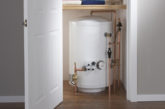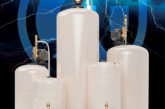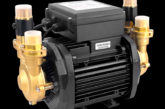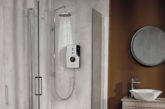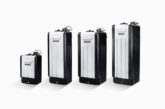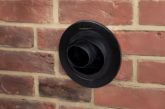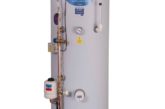
Bristan Specification is reminding the industry of the importance of ensuring adequate Legionella prevention measures, following news of another fatality caused by exposure to the deadly bacteria.
After a 24-day stay in hospital on a cancer ward in July last year, 68-year-old Mr Terry Brooks tragically died from pneumonia caused by Legionella.
Following a recent inquest, it was found that the Bath local was most likely to have contracted the disease from the hospital’s water supply. Investigations revealed that water samples taken from his ward the day before his death were contaminated with Legionella, while further testing found no evidence of the bacteria at his home or other possible sources.
Chris Tranter, Product Manager at Bristan, comments: “This tragic incident, one of a number to hit the headlines in recent months, is a powerful reminder of why, as an industry, we must bring Legionella control to the top of the agenda.
“Although there is an abundance of guidance around the control of Legionella, the problem lies in the fact that the onus is put on a ‘competent person’ to carry out risk assessments to determine which strategies, regimes and products are most appropriate, leaving wide scope for human error. Coupled with this is the fact that there is still a lack of concrete evidence about the effectiveness of one strategy versus another; i.e. using thermostatic point of delivery devices versus the management or treatment of the circulating water supply. This makes the control of Legionella and other water-borne bacteria a minefield for IPC teams.”
The primary method of eliminating the risk of Legionella lies in the use of hot water. The disease is most commonly found in water, whereby the bacteria multiply where temperatures are between 20 and 45ºC. As such, water must be stored at 60ºC or above to limit growth and all water devices must be regularly, ideally fortnightly, flushed to prevent any internal build up.
However, this brings into light another very important safety concern; the risk of scalding. If water reaches a tap at 60ºC, people can be scalded and, in severe cases, third degree burns can occur in just five seconds. As such, current guidance recommends the use of TMV3 approved products in healthcare establishments.
Chris adds: “Both the risks of hot water scalding and Legionella must be weighed up on an adhoc basis. However, when TMVs are used, taps need to be thermally flushed with hot water at 60ºC on a regular basis to prevent stagnation and kill any bacteria. Though the exact regime and frequency will be determined through risk assessments, the more often flushing is carried out the better, as the regular flow of hot water prevents stagnation. And in recognising this need, our latest generation of taps has been specifically designed to make the thermal flush as quick and simple as possible, taking it from up to 30 minutes to just ten per tap.”
He concludes: “Although it’s still a topic of much debate, it is vital that, as an industry, we take a considered and holistic approach to the specification of products which can aid Legionella control and hot water safety, thus helping to ensure such tragic circumstances like this are prevented.”
Bristan stocks a full suite of Specification products specifically designed to aid healthcare providers in their infection control regimes. This includes the new and improved H64 tap, widely considered the most hygienic on the market, which includes a host of clever features designed to make hot water flushing incredibly easy and quick to do.
For more information, visit: www.bristan.com.


